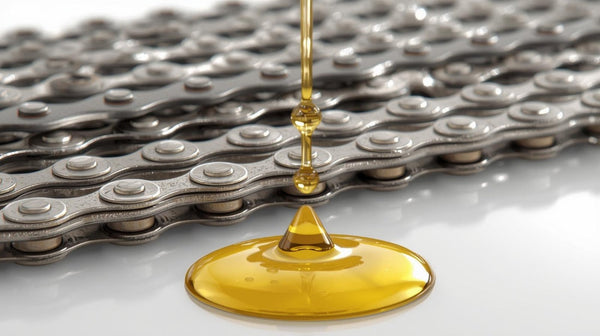Synthetic and mineral hydraulic oil comparison
Comparing synthetic and mineral hydraulic oil allows you to understand the differences between the two types of fluid used in hydraulic systems. Here are the main differences and features that characterize synthetic and mineral hydraulic oil:
Chemical composition:
- Synthetic hydraulic oil is a chemical product that is not based on petroleum products. Instead, it is made of synthetic chemicals such as esters, polyalphaolefins (PAO) or polyglycol (PAG).
- Mineral hydraulic oil is made from refined mineral oils derived from petroleum.
Lubricating properties:
- Synthetic hydraulic oil has excellent lubricating properties. Its low friction and wear properties reduce mechanical resistance in the hydraulic system, resulting in better performance and longer component life.
- Mineral hydraulic oil also has good lubricating properties, but compared to synthetic oil, it may have slightly higher friction and wear.
thermal stability:
- Synthetic hydraulic oils have high thermal stability. They are more resistant to degradation at high temperatures, making them ideal for extreme conditions.
- Mineral hydraulic oils are less heat resistant and can degrade under extreme thermal conditions.
Oxidation resistance:
- Synthetic hydraulic oils are more resistant to oxidation than mineral oils. This means they are less likely to form deposits and contaminants in the hydraulic system.
Viscosity:
- Synthetic hydraulic oils typically have a lower viscosity than mineral oils. This allows them to flow better through the thin channels in the hydraulic system.
- Mineral hydraulic oils tend to have a slightly higher viscosity, which can affect the flow efficiency of the system.
- Costs:
- Synthetic hydraulic oils are generally more expensive than mineral oils. The higher price is due to the more complicated production process and the use of advanced raw materials.
- Mineral hydraulic oils are less expensive and more widely available, making them more attractive in applications where specialized oil properties are not required.
To sum up
Synthetic hydraulic oils have better lubricating properties, thermal stability and oxidation resistance than mineral hydraulic oils. They are more suitable for demanding applications such as aerospace, marine and heavy machinery.
Mineral hydraulic oils are more commonly used due to their availability and lower cost, and in applications where specialized performance is not required. Choosing the right type of hydraulic oil depends on the specific requirements and operating conditions of the hydraulic system and the manufacturer's recommendations.
Can you mix synthetic oil with mineral oil?
In most situations, mixing synthetic oil with mineral oil should not be a problem, especially when the synthetic oil is based on polyalphaolefins (PAO).
In case of doubt or the need for a more thorough analysis, it is worth consulting a specialist or a representative of the oil manufacturer and the device in which the oil is used.















